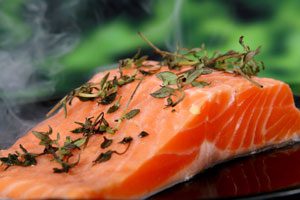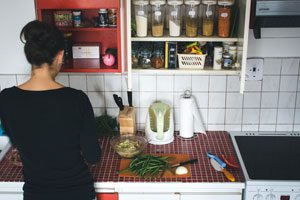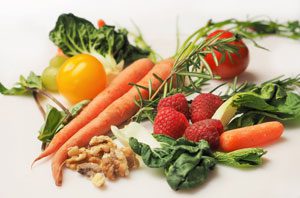Eating well at uni…

Newly free from parental control; looking after yourself; surrounded by people in the same situation; parties left, right and centre. It’s no wonder we hear of first year students getting ill or struggling to control their weight.
It sounds difficult, but you can eat well at university. Amongst the excitement and debauchery, it is a case of remembering your priorities – your health and your education. Poor diet brings about health problems, but students also need the right fuel to learn and live life to the full!
Here are my “DOs and DON’Ts” – they concern energy/calorific intake, nutrition/protein intake and general mindset/outlook. NOTE: those with special dietary needs should always follow individual advice given by their dieticians, doctors and nurses.
Energy & calorific intake
- Be mindful (or even log) your calorific intake. The AVERAGE student requires:

- ♀ ≈ 2000kcal
- ♂ ≈ 2500kcal
- Maintain a healthy routine; try to eat what you NEED to fuel mental/physical activity
- Eat your breakfast before a day of lectures!
- REMEMBER: there are calories in drink AS WELL as food!
- This includes campus coffees, energy drinks, happy hour cocktails, pints and pints of lager…they all add up.
- Starchy carbs are a good base for meals, especially if you struggle to take on enough energy
- Potatoes, rice, pasta
- Source of fibre, calcium, B-vitamins and CHEAP!
- Wholegrain if you can – you wouldn’t believe the difference in nutrition
- Don’t eat too little
- Don’t eat too much
- Don’t drink too much alcohol
- Drinking none is even better
It’s basically this simple in theory, but a lot lot harder in practice.
Alcohol and calorie management: An honest guide:
Binge drinking is more likely, making controlling energy intake much harder – higher consumption of “empty” calories through rounds of drinks, plus poor decision-making.
On a night-out you’re far more likely to eat cheesy chips or a kebab at 2am (who eats lamb donner meat sober?!). And then the hangover day? Forget it. Your only activity might be eating chow mein in your pyjamas watching Netflix.
This lifestyle may even become routine; hence reports of students putting on a stone or even 2 in their first year. Party “smart”, people!
Nutrition
Seriously, there are too many benefits of having a plant-based diet to mention! You cannot expect to burn the candle at both ends, especially without keeping yourself properly fuelled. Eating more than 5-a-day will take you a long, long way nutritionally.
- Fresh is best, but INEXPENSIVE frozen or even tinned fruit and veg is fine
- Local markets often provide wider variety, higher quality at best price
- VARIETY IS IMPORTANT: eating different colours can help with this
- Drink plenty of water. Keep yourself hydrated, or get yourself rehydrated!
- Don’t restrict your diet too much
You need energy and nutrition to study effectively. If you gain weight and plan to diet, ensure enough nutritious food is eaten for you to function properly – also, avoid skipping meals.
- Don’t be afraid of new foods
I lived with a neophobic guy who didn’t like the texture of vegetables (he also used to cook bacon in the microwave). He changed through the magic of trying!
ENABLE yourself to eat well: use your growing knowledge of nutritious food and healthy recipes to allow yourself to love what’s good for you! Follow our mantra ‘begoodtoyourgut’ .. and instagram/Twitter accounts for ideas.
TOP TIP: INVEST IN A SET OF HERBS & SPICES. Afterwards you can just buy the fresh ingredients for meals – something delicious and nutritious with minimal effort or investment.
Protein
- Eat plant-based sources of protein
- Beans, nuts, pulse, legumes…
- High protein, high in vitamins and minerals
- CHEAP!
- Eat oily fish:
- Tuna (fresh), mackerel, salmon, trout, herring
- High in omega 3 fatty acids
- Difficult to obtain elsewhere
- Great for your brain, which will be working overtime
- 2+ portions of per week
- If you’re trying to gain muscle, you don’t need to eat half a cow every day to keep your “guns” pumped

- Venus and Serena (Tennis players), David Haye (Boxing), Nick and Nate Diaz (Ultimate Fighting) are all vegans and top sports people who don’t eat meat at all!
- Don’t always centre your meals around meat – centre around vegetables where possible.
- Red/processed meat are less healthy protein sources, so limit these to twice weekly appearances rather than daily.
- See my amazing Mediterranean blog for inspiration!
Mindset and outlook
DON’T…Become a slave to the endless fast food outlets and takeaway apps!
- Student deals make you easy prey
DON’T…Rely on ready meals
- Expensive!
- Loaded with fat, sugar and salt
DO…Kit out your kitchen so you want to use it more
- Cheekily ask Mum and Dad to help before you leave home, you and they will be surprised how many duplicate utensils are in your kitchen
DO…Make use of leftovers or make packed lunches
- Save money, effort and food waste
- Eat healthier and tastier
DO…Keep your kitchen fully functional
- If your kitchen is ridden with dirty dishes and pans, nobody will use it. Check your fridge contents and have an agreement with your mates regarding turnover. They can harbour some of the real ‘nasties’ E Coli and Campblobacter. Invest in a fridge thermometer (keep below 5 degrees C)
- ‘Not storing food properly and overlooking cleanliness can lead to a high risk of food poisoning,’ says Catherine Collins of the British Dietetic Association.
DO…Visit the supermarkets in the early evening for bargains, and see what you can find in budget stores
- Use online shopping during busy or stressful times (e.g. exams). More expensive but can pay off big time, if you have more time spent studying as those big exams approach
DO…Check out some of the many books and websites (SORTEDfood, student cooking, Jamie Oliver, BBC Good Food) dedicated to simple or student-friendly recipes
TOP TIP: SHARE MEALS. Cooking for 1 incurs a lot of leftovers, food waste and money waste. Sharing meals prevents this, food is an important social activity, don’t underestimate it. There’s also someone else to help with the washing up!
Do you have any survival tips for new students? Let us know what you think by commenting below! This blog is written by a student dietitian, with scientific and medical detail reviewed by a qualified dietitian/gastroenterologist.
0 Comment

Leave a Reply